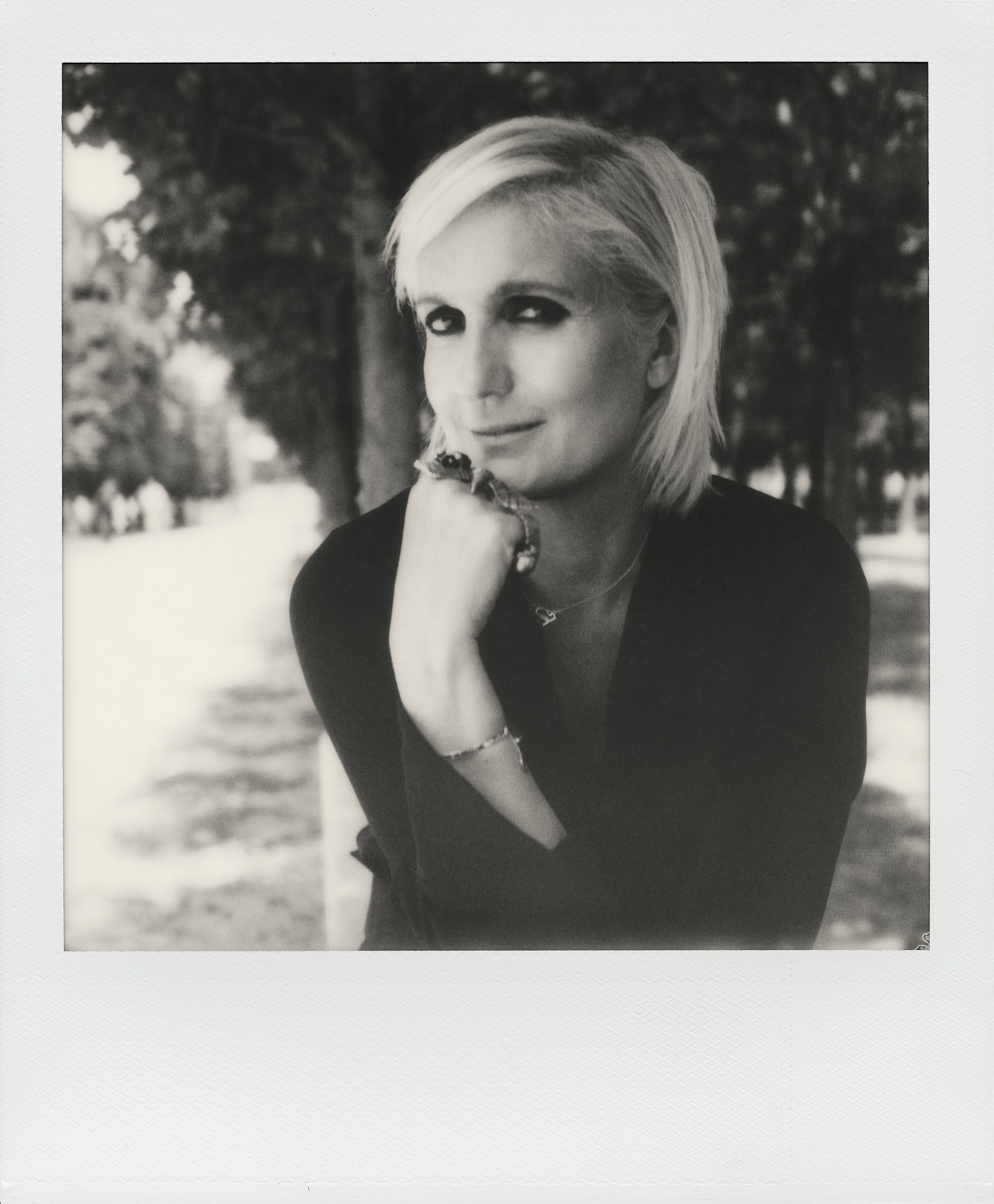Am I doing this woman thing right? Do you do this woman thing the same as me? Does it matter? Existential lady crisis — we all have it. Notes on Being a Woman is an ongoing series that examines the many myths and meanings of what being a woman is all about.
When Rome-born designer Maria Grazia Chiuri was appointed artistic director of Dior last summer, it caused a stir in Paris and beyond. Partly because she’d only previously worked as part of a design duo — with Pierpaolo Piccioli at Valentino, and before that as an accessories designer at the same house. While the industry wondered what her standalone vision would be, much of the discussion centred around the fact that she was the first woman to take the reins at Dior, one of France’s most esteemed fashion houses. As the industry talked, Chiuri marked the historic moment by focussing her debut collection on women.
A strident feminist and fierce activist, the 57-year-old designer themed the collection around the art of fencing — a metaphorical nod to the fight for gender equality. Injecting the classic Dior DNA with her distinctly Roman, bold brand of feminism, she paired delicate white floor-length tulle skirts with plain white tees, emblazoned with the galvanising slogan: We Should All Be Feminists.
Continuing the conversation about feminism and the arts, this season the designer paid tribute to the work of two phenomenal women: feminist artist and former Dior model Niki de Saint Phalle and world renowned art historian Linda Nochlin and her seminal 1971 text Why have there been no great women artists? the title of which was printed onto Breton striped tees. Under her reign, the Dior woman has been totally re-envisioned. Yes, she wears ballgowns, but she’ll wear them with relaxed flats, black leather berets and powerful feminist messages stamped across her T-shirts.
Here Maria Grazia offers her notes on being a woman:
The best thing about being a woman are the challenges that we face every day. They make us reflect on the true meaning — and, above all, the true potential — of being women.
The hardest thing about being a woman is accepting the ups and downs of emotions. Accepting your weaknesses, and then being able to turn them into strengths.
The best advice I’ve ever received about human bodies is that shapes, sizes and flaws don’t matter. Different bodies inspire different designs, and make me reflect on the relationship between body and clothes.
If I could go back in time, I would you tell my 16-year-old self that I was wrong about rebellion. I thought it was the only way to achieve success, and that instinct was the only voice worth listening to. Now I understand that it’s from a combination of heart and mind — emotion and reason — that world-changing ideas come.
There are many things that I’ve seen and read that have made me the woman I am today. Not just books and films, but works of art, objects, situations too. For me, femininity is a construct, an indistinct layering of experiences and emotions. A process of continuous growth.
The most unexpected thing I’ve learnt about being a woman is that the sound of a woman’s voice in a male environment is often destabilising. An unexpected effect, perhaps because women (too) rarely speak up in all-male meetings.
I’m happiest when I’m doing something that stimulates my creativity, that satisfies my curiosity. That teaches me new things.
My favourite song about being a woman is Anche un uomo by Mina, an Italian singer who sings about women with an unforgettable voice. Although it’s from 1979, for me it’s timeless. It’s a song — melancholic, perhaps, but very meaningful — which taught me that women need to look after themselves, especially in love. Then maybe Respect by Aretha Franklin who, with her gutsy voice, doesn’t ask but demands the respect that women deserve.
The women I admire most are bold, combative women. And above all proud, even when exhibiting their vulnerabilities.
The best thing about getting older is being able to subvert stereotypes. It’s so important to go against the status quo.
The biggest lie about getting older is that you have to stop playing and exploring.
I feel like a grown-up when I can decide who to be every day, without worrying too much about what other people think, as well as taking it upon myself to change opinions.
My question for the next woman doing this column would be: What’s next for women now? What are the new challenges that women, as a cohesive group, have to make their own?
